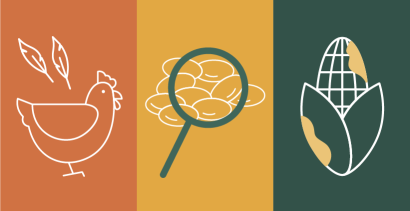Ebola (Q&A)
Last Updated : 08 December 2014What is Ebola?
Ebola is a rare and often fatal, acute illness, resulting from infection with one of the Ebola virus strains which can cause disease in humans and certain animals e.g. nonhuman primates (such as monkeys, gorillas, and chimpanzees), forest antelopes and bats. Ebola viruses are found in several African countries. The virus was first discovered in 1976 and since then, outbreaks have appeared sporadically in Africa, with the most recent cases being reported in 2014. The origin of Ebola virus is unknown, but fruit bats are considered to be the likely host.
How do people become infected with the virus?
Ebola virus is a zoonosis, meaning it is an animal infection transmissible to humans. Human infections are thought to be linked to direct contact with wild animals (e.g. fruit bats, chimpanzees, gorillas and forest antelopes) in sub-Saharan Africa.
Once people become infected with Ebola, they can also transfer the virus to other people through direct contact with infected blood, tissues, organs and other bodily secretions and fluids.
What are the typical symptoms of Ebola virus disease?
Humans are not infectious until they develop symptoms. Disease symptoms include diarrhoea, fever, headache, muscle pain, stomach pain, unexplained bleeding or bruising and vomiting. Ebola virus disease can only be confirmed through laboratory testing.
What is the treatment of Ebola virus disease?
Severely ill patients require intensive supportive care. The Ebola virus does not have a cure or vaccine at this time. Some patients will recover with the appropriate medical care. To help control further spread of the virus, people that are suspected or confirmed to have the disease should be isolated from other patients and treated by health workers using strict infection control precautions. These precautionary steps include washing hands with soap and water or an alcohol-based hand sanitizer and refraining from handling items a person with Ebola has handled including clothing, bedding, needles, or medical equipment.
What is the risk of Ebola being spread through food?
The Ebola virus is not transmitted through the air, water, or in general, by food. Ebola may be transmitted to humans through the handling of bushmeat (i.e. meat taken from hunted wild animals native to African forests). Despite the frequent consumption of bushmeat in Africa, the number of Ebola outbreaks reported there are relatively low. However, there is a high potential for bushmeat to be contaminated with a wide range of potential pathogens and for this reason the import of bushmeat into the EU is illegal.
The European Food Safety Authority (EFSA) carried out a risk assessment of the potential for introduction and transmission of Ebola in Europe through illegally imported bushmeat. This assessment was carried out because the health consequences of a person infected with Ebola are very serious, given the high lethality of the virus and ease of transmission between humans. EFSA considers this risk to be low but recommends that prevention of all illegal imports of bushmeat into the EU should be strictly enforced.
How can I protect myself against Ebola infection?
Individuals who travel to or are in an area affected by an Ebola outbreak can take several precautions to protect against infection. These measures include avoiding contact with blood and body fluids of an infected person and avoiding contact with wild animals, alive or dead. People should avoid consumption of bushmeat. Freezing or refrigeration of infected meat will not inactivate the virus and it can survive in liquid or dried material for many days. High heat (60°C for 60mins or 100°C for 5 mins) inactivates the virus. The virus is also sensitive to bleach and other disinfectants so people should ensure good hygiene practises such as regular hand washing using soap or antiseptics.
Related Information:
- World Health Organization. Frequently asked questions on Ebola virus disease.
- Healthline. Ebola Virus and Disease.
- European Food Safety Authority. (2014) Press Release: EFSA assesses the risk of transmission of Ebola through bushmeat.
- European Food Safety Authority. (2014). An update on the risk of transmission of Ebola virus (EBOV) via the food chain. EFSA Journal. 12(11):3884.
- Centers for Disease Control and Prevention. Questions and Answers: 2014 Ebola Outbreak.
- European Centre for Disease Control. (2014) Outbreak of Ebola virus disease in West Africa. Rapid Risk Assessment Series.



